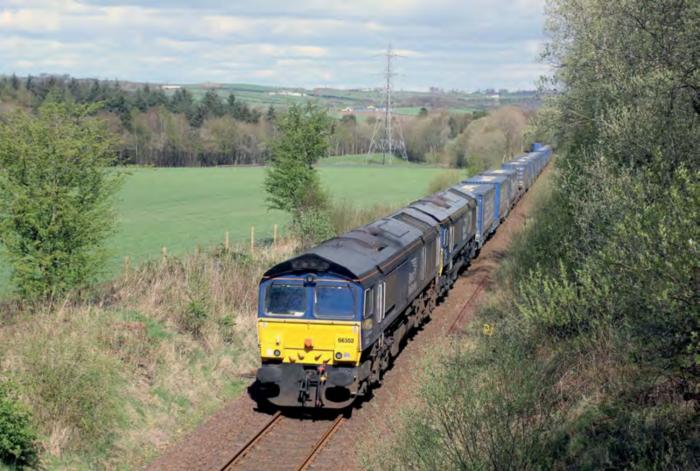As the nation prepares to elect a new Government on 8 June, it seems unlikely that rail freight will play any role in influencing voting decisions! Yet transport is an electoral issue, as is air quality and the environment, and in recent parliaments we have enjoyed good support for our sector in transport policy. So the pre-election period does give an opportunity to set out our priorities for the incoming Government.
Rail freight is a key part of UK’s freight and logistics. We move a quarter of all containerised imports from the nation’s ports to consumers, deliver 40% of the construction aggregates used in London and the south east’s building boom, and underpin key industrial sectors such as steel. Despite changing markets, rail freight continues to grow services and is working to become more efficient and high-performing – despite the constraints of an ever more crowded rail network. This is delivering economic and environmental outputs valued at around £1.6 billion per year, including through road decongestion, reduced emissions and productivity gains for business.
Rail freight is of course a private sector business and not under direct control from Whitehall. Yet Government action is key to providing a framework that allows rail freight to prosper, and allows those private sector operators and customers to invest for the future. This is particularly important when considering wider changes to railway policy that may be under consideration, including the structure of passenger franchises and Network Rail.
The outgoing Government set out its rail freight strategy last autumn, and in the likely event of a returning Conservative Government, we might expect to see continued development of the themes in that document. However, nothing can be taken for granted in elections, so what are the key rail freight priorities for the new Government?
PUT RAIL FREIGHT AT THE HEART OF POST-BREXIT TRADE LINKS
This election is all about Brexit, and for all in the freight sector, understanding the impacts on the free movement of goods is a critical priority. Trade is at the core of the economy, and as Brexit forges new global trading arrangements, we need efficient freight and logistics links to deliver exports to market, and imports to our consumers and manufacturers. Rail freight is a key part of this, with strong links to ports and the Channel Tunnel. Government needs to support these links, through streamlined customs procedures, investment in infrastructure and ensuring seamless international journeys by rail can continue.
INVEST IN RAIL FREIGHT INFRASTRUCTURE AND TECHNOLOGY
Government investment in rail infrastructure is key to enabling growth, and for freight this is often about smaller schemes to unlock capacity, or enable more efficient trains to operate. As the railways look to technology to help modernise services and deliver new capacity it is essential that freight is also able to benefit. Government should prioritise and commit to investment for freight in the next five-year railway funding cycle.
PROVIDE A STABLE ENVIRONMENT FOR FREIGHT TO ENABLE PRIVATE SECTOR INVESTMENT
Private sector train operators and customers are investing in equipment and services, but to continue they must have sufficient confidence in the future structure of the UK’s railways. Although there are benefits in devolution, there are also risks for nationwide cross-route operators, and a strong ‘system operator’ function is essential. There must also be stability in the access charges paid to operate on the network, avoiding increases that jeopardise rail’s position compared to other modes.
RESTORE AND PROMOTE RAIL FREIGHT GRANTS TO SUPPORT NEW SERVICES
For new services, and as new terminals and interchanges develop, tactical freight grants have been an essential part of Government’s support for the sector. Despite the scheme having excellent and improving value for money, the budget has been cutback, risking traffic returning to road and undermining growth and investment. Government must act to restore the budget to previous levels, and work with the industry to ensure it is most effectively targeted.
ENABLE THE DEVELOPMENT OF MODERN FIT-FOR-PURPOSE TERMINALS
Freight terminals are our stations, and need to meet the needs of demanding customers. We need a planning system that can deliver new locations and protect existing sites from adverse development. Government must commit to this safeguarding, and to ensuring that railway land used for operational freight sites is retained by Network Rail for the long-term use of the sector. Whatever the result next month, these priorities will be a key part of our messages to the new transport ministers and their team.
An opinion column of the Rail Freight Group, www.rfg.org.uk

